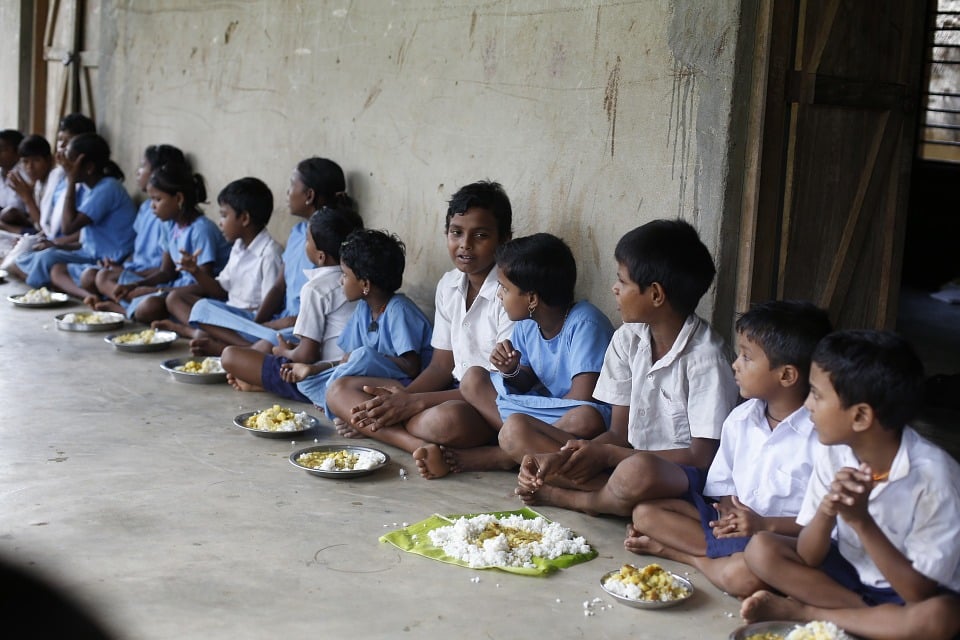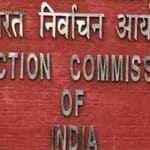What is Midday Meal Scheme?
- Under article 24, paragraph 2c of the Convention on the Rights of the Child, to which India is a party, India has committed to providing “adequate nutritious foods” for children.
- Midday meal scheme (MDMS) is a centrally sponsored scheme to boost the universalisation of primary education by increasing enrollment, retention and attendance in primary and upper primary classes.
- As per guidelines, cooked meals are to be provided with 450 and 700 calories and 12 gm and 20 gm protein contents for primary and upper primary school children, respectively.
- The programme has undergone many changes since its launch in 1995. The Midday Meal Scheme is covered by the National Food Security Act, 2013.
Read in Hindi: MidDay Meal and Aadhar: How ethical is the linkage? (Hindi)
MDMS and Aadhar
Central government’s recent decision to link the midday meal scheme to Aadhaar has irked many who say it would completely disrupt the process of food distribution and teaching and learning.
- They also say it would create an “inhuman culture” where children would be denied food due to exclusion through biometrics.
- Teachers have instead called upon the administration to focus more on providing nutritious food to the children along with a strong school health programme.
- Some teachers gave instances of classroom hunger and stunted children coming to their schools.
- As the children coming to the government schools are from poor backgrounds, mostly Dalits and minorities, schools generally ensure that the little siblings who come with the older children are also fed.
- “If the machine does not match biometrics of a child, will he remain without food and sit in a corner watching others having their meals? Won’t it be inhuman?” asked a teacher.
- The teaching-learning process will also be disrupted, as the day would be over in the exercise to authenticate an average of 200 children in each school.
Facing criticism for making Aadhar card mandatory for the benefits of mid-day meal, the government on Tuesday cancelled its earlier order saying no one will be deprived of the benefits for lack of Aadhaar.
The government reiterated that till Aadhaar number is assigned to any individual, the benefit will continue to be given based on alternate means of identification.
It also directed the departments to provide Aadhaar enrollment facilities to their beneficiaries under Regulation 12 of Aadhaar (Enrollment and Update) Regulations 2016.
The directive raises a number of ethical as well as practical questions, besides violating children’s right to education, nutrition and health.
Why the State is wrong in linking Aadhaar to the mid-day meal scheme?
- Research has established that Mid-day meals in schools reduce hunger, increase enrolment and attendance and improve learning outcomes.
- Many countries have a school meal programme. In India, Tamil Nadu universalized the meal scheme in the early 1980s and a Supreme Court order in 2001 made provision of hot cooked meal in all government schools a legal entitlement across India.
- Currently, the MDMS covers more than 100 million children across 1.15 million schools. More than 2.5 million women, mainly from SC/ST/OBC communities, are employed as mid-day meal cooks and helpers making it one of the best programmes in the social sector.
- There are various gaps in the delivery mechanism, such as irregularity in supply, poor hygiene and infrastructure, inadequate nutritional content of meals, difficulties in estimating the exact number of children using MDMs, etc. It is, however, not clear as to how using a mandatory Aadhar for children will address any of these issues.
- The official basis for mandating the Aadhar for a mid-day meal is that, “the use of Aadhaar as identity document for delivery of services or benefits or subsidies simplifies the Government delivery processes, brings in transparency and efficiency”. Simplifies government delivery process by limiting the number of children that can access MDMs? Bring in transparency and efficiency by denying some children food, because they have not been able to get a number tagged to their fragile selves? What does it make transparent, and what or to whom, is the accountability being established through this method?
The use of biometrics for children raises other troubling questions as well.
- First, fingerprints of children are not fully developed till they are 15 years of age. Even the UIDAI is not supposed to capture biometrics for children under five.
- Secondly, there are serious issues related to capturing and storing children’s biometric data, as the issue of right to privacy is still being debated in the Supreme Court.
- Thirdly, the government has stated that Aadhaar is purely voluntary and the data is being collected and shared only after taking consent. In the case of children, who is giving consent? And what if a child when she becomes an adult does not want her biometrics to be shared?
Besides, the experience of using Aadhaar in other schemes has been unsatisfactory. Around 30% of beneficiaries have reported facing authentication issues; problems related to mobile networks, electricity supply and so on — common problems in large parts of India. Will an authentication process be carried out on every child on a daily basis, before providing the mid-day meal? And will some children be denied food, because the technology failed?
- Another stark reality brought up by this notification is the continued disregard for children in our society. From the abysmal statistics on their health and education status to the level of violence and other injustices perpetuated on them, children and their rights continue to be neglected.
- Attention should instead be on ways to create a welcoming, nurturing environment for children to come to school, enjoy a hot cooked meal, expect to get a decent education, appeal to the basic human instincts of teachers and others in the system towards children who are dependent on them, rather than make the children themselves the villains, as it were, apparently disrupting efficiency in the system.
Other methods to reduce corruption in MDMS
- Community monitoring
- Social audits
- Decentralised grievance redress systems
- Public display of information on beneficiaries and menus.
Sources: The Hindu, The Indian Express, Hindustan Times, Wikipedia











